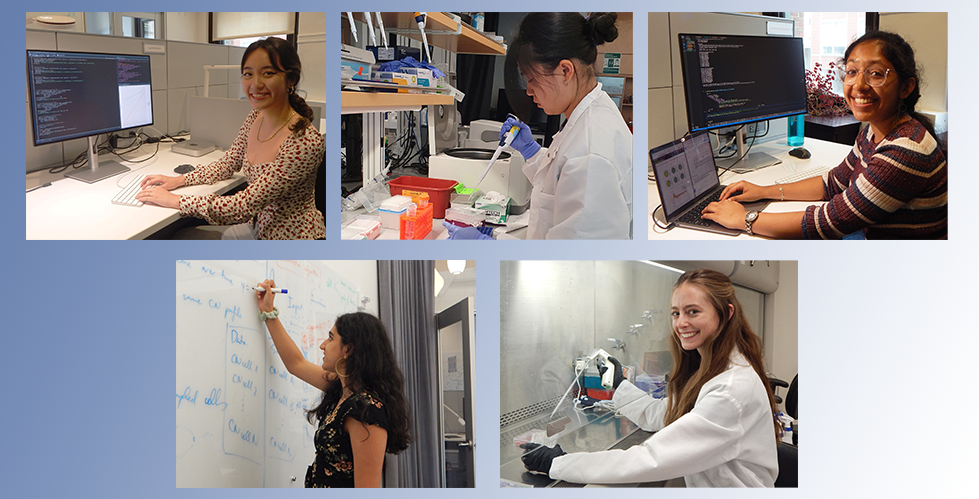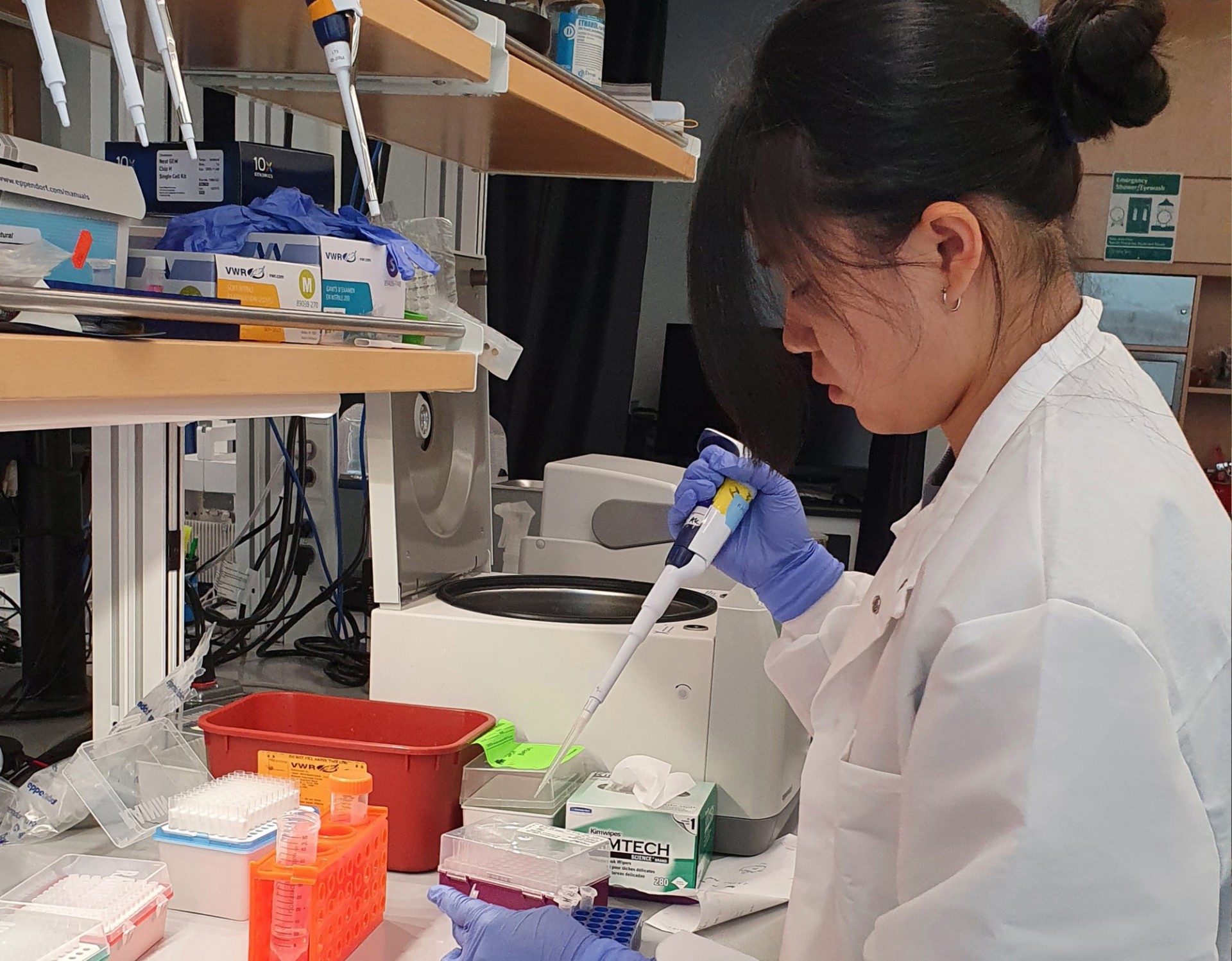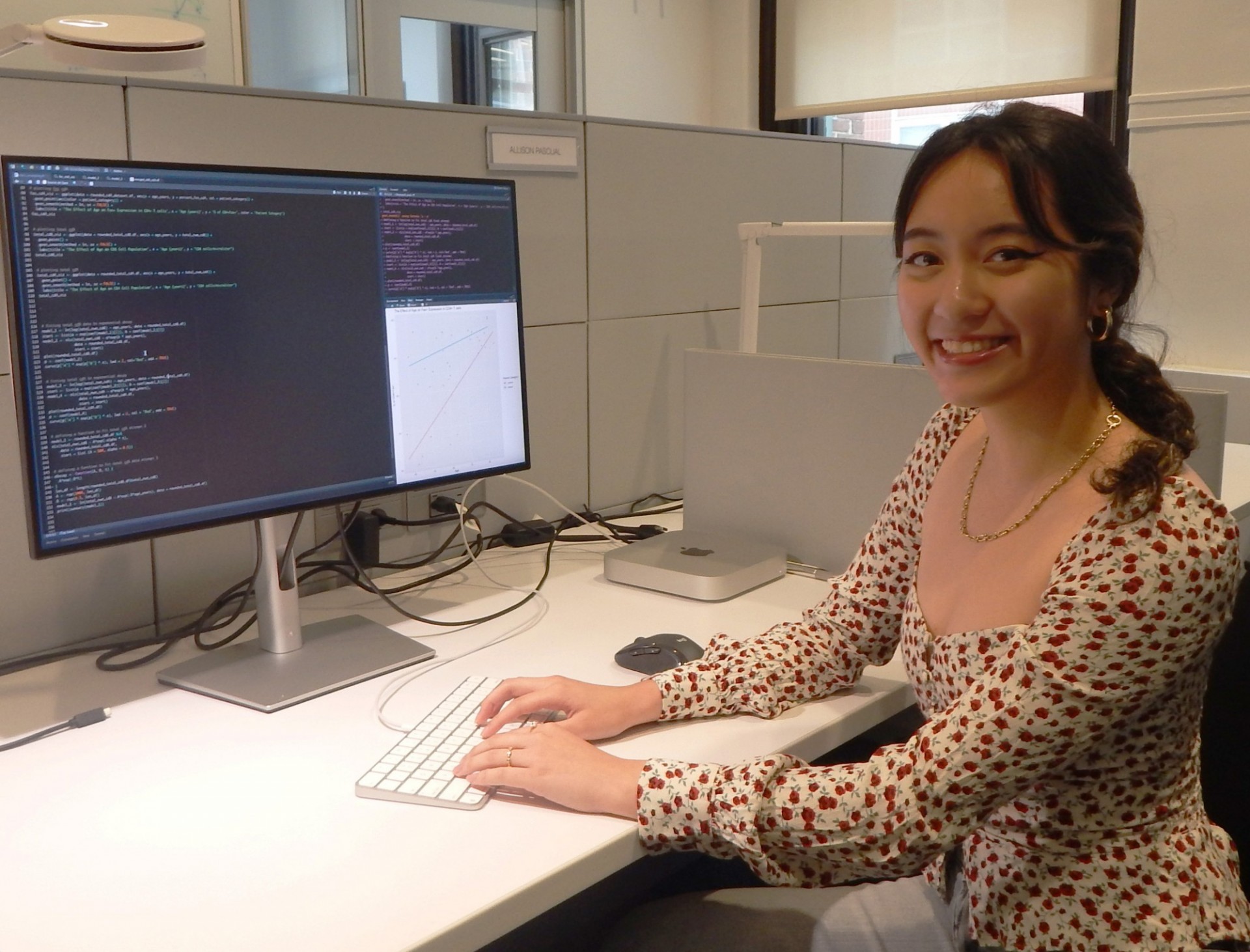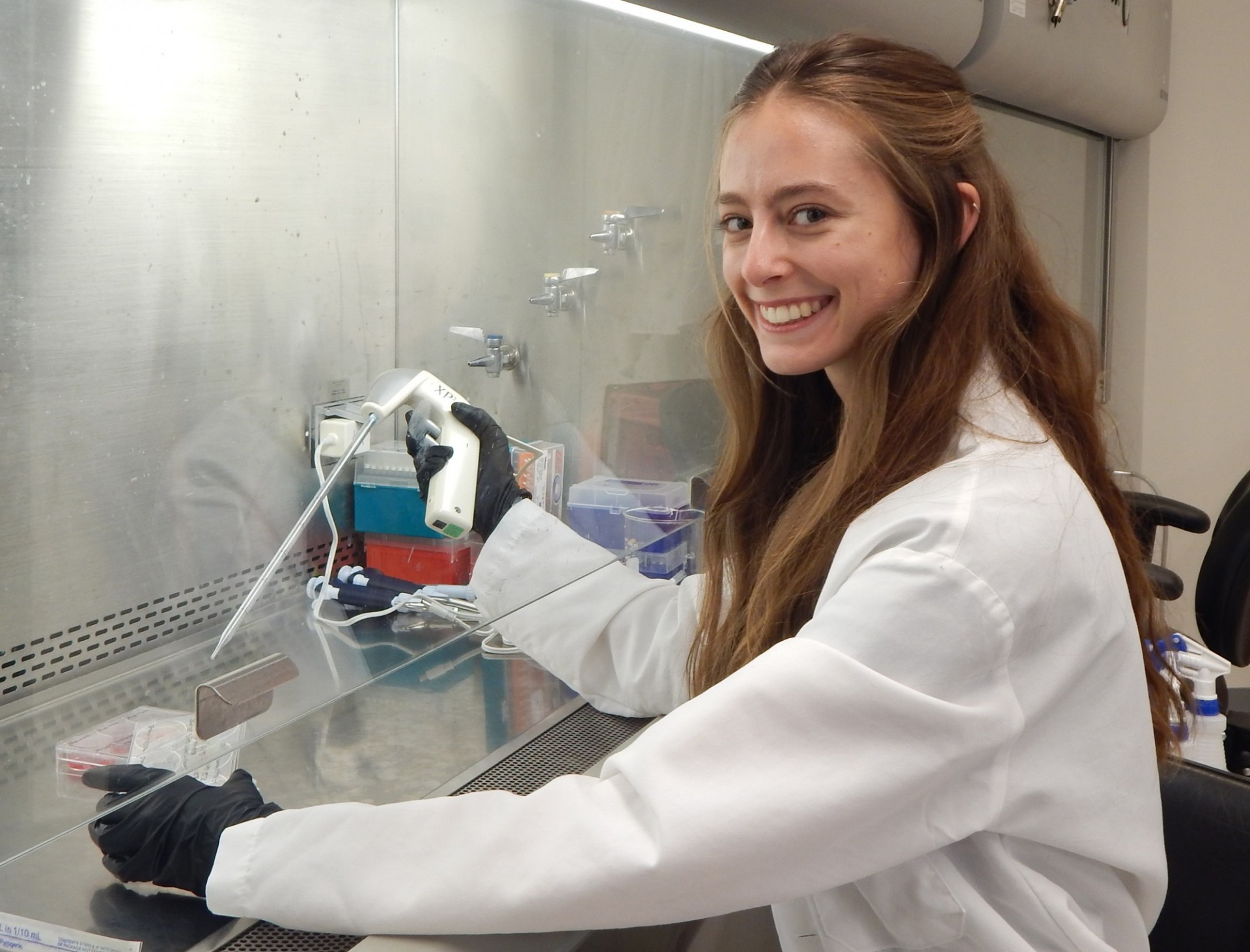Q&A with 2022 IICD Summer Research Interns

Get to know the amazing interns participating in our first summer research internship program as they share more about themselves inside and outside the lab.
Isha Arora (She/Her) is a rising junior in biomedical engineering and computer science at Cornell University. She is mentored by Dr. Elham Azizi, IICD Faculty Member.
1/ How did you get interested in science and doing research?
As a child, I knew I was interested in the STEM field. Yet, it was while watching educational videos on Khan Academy about various diseases that I discovered my love for biology. Since then, I sought out opportunities to conduct research, ranging from an internship at Hilleman Labs regarding microneedles and vaccines to cancer-related research in my lab at Cornell. Along the way, I discovered my interest in Computer Science (CS), and now am working at the intersection of CS and Biomedical Engineering (BME) at the Azizi Lab in Columbia.
2/ What is your favorite thing about science?
Besides enjoying the feeling of truly understanding the principles that govern scientific phenomena, I personally enjoy the thrill of the research journey. While conducting experiments and simulating models to understand biological phenomena, I enjoy the thought process that goes into understanding results and re-evaluating experiments to get the required output.
3/ What are your plans after receiving your undergraduate degree?
Post my undergraduate degree, I plan to pursue a PhD in the field of computational biology to study the biology of cancer and other such diseases. After my PhD, I hope to pursue a career in the BME industry.
4/ If you could be any scientist, who would it be and why?
If I could be any scientist, I would be my mentor - Dr. Elham Azizi. She is conducting leading and innovative research within the computational side of BME and working on creating methods that integrate single-cell and high dimensional genomic data. Given the awe-inspiring research she conducts and given my desire to work in a similar area in the future, I truly look up to her.
5/ Tell us a fun fact about yourself.
I am a professional Bharatanatyam dancer! I have been learning the artform since the age of 5.
6/ What do you like to do when you are not in the lab?
Some of the things that I enjoy doing outside of lab include choreographing dances, cooking, and reading books (which is made even better if I am reading them in a park).

Theresa Luo (She/Her/Hers) is a rising sophomore in biochemistry at the University of Southern California. She is mentored by Dr. Karol Nowicki-Osuch, IICD Associate Research Scientist.
1/ How did you get interested in science and doing research?
I’ve always enjoyed science even when I was young. There was so much magic in my science classes motivating me to work harder in them. However, I only realized science contained a career for me when I met my 10th-grade chemistry teacher. Up until that point, science was always fun, but challenging. There were too many concepts to comprehend and apply causing mass frustration. However, my 10th-grade chemistry teacher, Mr. Brunetti, had a special talent for breaking these concepts into simpler pieces. Not only did this shape my way of problem-solving, but it also made me realize I was capable of anything. With enough effort and support, I overcome even the hardest challenges. So, I began to seek research opportunities such as conducting research on biofilms in the Genspace Lab, multiple myeloma research at USC’s CURE Lab which led me to Columbia’s IICD Program where I work on RNA sequencing.
2/ What is your favorite thing about science?
I love how science is constantly changing and incomplete. Although we have made great discoveries over the years, there’s so much more to question and explore. Consequently, there is always more to learn and engage in. There truly is never a dull moment when conducting research. So, although we were first introduced to a linear scientific approach/model, it has been reformed into a circular pathway.
3/ What are your plans after receiving your undergraduate degree?
Currently, I’m still a little undecided on my future career goals. I’m unsure if I want to go to graduate school to obtain a chemistry PhD, medical school, or even attempt an MD/PhD program. However, I am confident I want to pursue higher education. I hope through this internship as well as volunteering in the upcoming fall will provide me with clarity on this decision!
4/ If you could be any scientist, who would it be and why?
Rather than be a scientist, I would love to meet Rosalind Franklin. When I was young, I never grasped the concept of “being a woman in STEM”. However, after learning about Franklin’s contribution to the discovery of DNA’s structure without proper credit, this concept became a reality. Many women including myself can relate to Franklin’s experiences in her scientific career. There have been many instances where I was underestimated by my peers leading to extreme doubt. I question whether or not I’m good enough, smart enough, or capable enough to keep up with the men in my classes. In a male dominant major studying under male-dominant professors, I often feel discouraged. However, I look at Franklin as a source of inspiration. She reminds me just how capable women and myself are and how deserving we are to make our mark in this field.
5/ Tell us a fun fact about yourself.
I have a scar that cuts through one of my eyebrows.
6/ What do you like to do when you are not in the lab?
I love to bake during my free time. I also love taking long walks by myself to just enjoy the view. I also love to bike along the shore. These are my favorite activities to do when I’m stressed out or just need a little bit of fun!
Sruthi Parthasarathi (She/Her/Hers) is a rising junior in biological engineering and mathematics with computer science at the Massachusetts Institute of Technology. She is mentored by Dr. Andrew Blumberg, IICD Faculty Member.
1/ How did you get interested in science and doing research?
Math was a pretty significant part of my childhood, and it made me realize how much I enjoyed the process of finding patterns and then going one step further to prove and understand why they arose. I see the same process now when I look at science on the whole; I’ll always love knowing why things work the way they do, and research is a space to channel that into any observation or problem I’m interested in.
2/ What is your favorite thing about science?
I love that the awe that accompanies learning about a new discovery never diminishes — every day, it’s easy to look at everything we’ve seen in the past ten years and think there couldn’t possibly be more. But then you hear about someone’s work, or see a breakthrough in an article, and it’s just as exciting as all of the work that built up to it. I know I’ll keep being humbled by it throughout my career.
3/ What are your plans after receiving your undergraduate degree?
I hope to pursue computer science and/or biology in some form or another through graduate school, and after that? No clue at the moment, but I’m excited.
4/ If you could be any scientist, who would it be and why?
Alan Turing — I don’t know if I could dream of being them knowing all of the hardships they went through, but they were so brilliant, passionate, and resilient in the way they faced them and still contributed so much to their field. As a side note, The Imitation Game, which is about Turing, is one of my favorite movies of all time and I would highly recommend it :)
5/ Tell us a fun fact about yourself.
Debatably fun but facts nonetheless; I am a matcha enthusiast, my favorite number is 17, and I probably have more pictures of sunsets and skylines than people on my phone.
6/ What do you like to do when you are not in the lab?
I’m a fan of anything artsy! I sing/act, play the piano, and watch musicals, as well as doodle occasionally, check out art installations, or take photos of nature and architecture. I also enjoy taking long walks in breezy weather and trying to make the most experimental toast I can with whatever is in my fridge at the moment (truly, a scientist at heart).

Allison Pascual (She/Her) is a rising sophomore in biology at Stony Brook University. She is mentored by Dr. Sanket Rane, IICD Associate Research Scientist.
1/ How did you get interested in science and doing research?
I remember my first biology class in high school, where my teacher picked up our four-hundred-page textbook, pointed to it and said “About 60% of what is in here, will not be true twenty years in the future.” This remark struck me and I was interested in how I could contribute and be a stepping stone to get to a more accurate answer and understanding of science.
2/ What is your favorite thing about science?
I like that science is always changing– research brings about new results, disproves old ones, and the fields that revolve around science are never stationary. They are fluid, in motion, and always advancing. I like that even after four years of college, and even after four years of continued education, there is always more to learn and be fascinated by.
3/ What are your plans after receiving your undergraduate degree?
As a college freshman, I am very open to the many possible paths that may diverge from my current interests. However, my internship at IICD has cemented my interest in science, so I know that I would definitely continue my education after receiving my undergraduate degree. I am considering both a PhD and MD degree, but regardless of my decision I know that medical research is the field that I want to be in, and that research is something I would love to continue for the rest of my future career.
4/ If you could be any scientist, who would it be and why?
If I could be any scientist, I would be Neil deGrasse Tyson! Not only because we are both alumni from the Bronx High School of Science, but also because it would be interesting to see through the eyes of a scientist with a different research study than mine. Neil deGrasse Tyson is an astrophysicist and planetary scientist, and although I have not learned much on the subject, I remain fascinated by his area of research. In addition, Neil deGrasse Tyson is well known for popularizing science with books and appearances on television shows. He has appeared in Gravity Falls, several documentaries, and several talk shows. I think it would be fun to have these experiences while simultaneously being the reason why others fall in love with science.
5/ Tell us a fun fact about yourself.
A fun fact about myself is that I have a twin brother! Although we are twins, we are extremely different, from physical appearance to personality. He is currently majoring in Computer Science and Mathematics, so he is able to lend a helping hand with my research if needed. As IICD has come to show me the beauty of combining computer science and biology for research, I am beginning to learn a lot from my brother’s expertise and we are finding that we have much more things in common than we had previously thought!
6/ What do you like to do when you are not in the lab?
When I’m not doing research, I enjoy running, whether that be a recreational long-distance jog through my local park, or a competitive 5k run. I also enjoy dancing, and although my competition days are long gone, I continue to take a few classes to maintain my mobility and strength. I also recently incorporated weight training into my workout routine, and I am learning to embrace this new form of fitness in addition to my past hobbies. Health and fitness are major aspects of my life, and I have learned that running, dancing, and working out serve as amazing stress-relievers especially during such an uncertain time of our lives. However, most importantly, I enjoy spending as much time with my friends and family as possible, whether that be visiting different art museums, baking, or watching TV shows. As long as I’m with the people I love, I consider it time well spent!

Mackenzie Sky (She/Her/Hers) is a rising senior in biology and chemistry at SUNY Purchase. She is mentored by Dr. José L. McFaline-Figueroa, IICD Associate Member.
1/ How did you get interested in science and doing research?
As a dance major, the studio was my laboratory testing the limitations of the human anatomy through movement. The pandemic gave me time to take science classes outside of the dance conservatory curriculum, and I discovered that I wanted to follow my passion for science. Specifically, I wanted to learn more about genetics and cancer. I was attracted to research because you are able to make an impact on a larger population that would not be possible as a physician treating patients only in their geographic area.
2/ What is your favorite thing about science?
It is difficult to choose one thing about science because everything excites me. However, I love that science is a creative process that involves communication with other people to solve a problem or make a discovery.
3/ What are your plans after receiving your undergraduate degree?
I plan to take a gap year to gain more research experience before I apply to MD/PhD programs. I hope to continue research in cancer biology and genetics in the future.
4/ If you could be any scientist, who would it be and why?
Elizabeth Blackwell inspires me because she tested societal expectations by becoming the first woman to attend medical school. Her self-resilience and perseverance led her to pave the path for women to enter the medical profession in leadership positions.
5/ Tell us a fun fact about yourself.
When I was a child, I wanted to be a scientist and doctor. However, I told myself I couldn’t be a doctor because I fainted at the sight of needles. Now after meditation and more exposure to the medical setting, I have been able to conquer this syndrome (vasovagal syncope). If there is a will, there is a way.
6/ What do you like to do when you are not in the lab
When I am not in the lab, I enjoy the outdoors at Riverside Park or Central Park. I also run and take dance classes on my free time.
